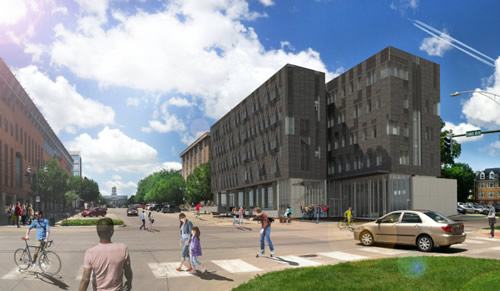University of Iowa Constructing Psychological and Brain Sciences Building
Construction is underway on the campus of the University of Iowa (UI) in Iowa City for a facility that will be the new home of UI’s Department of Psychological and Brain Sciences.

The new $33.5 million, 66,470-square-foot building will include 70-student and 30-student classrooms that can be combined for use as high-tech TILE (spaces to Transform, Interact, Learn, and Engage) classrooms.
With 15 cutting-edge labs for human research, the building will be better equipped for faculty and graduate and undergraduate students to conduct research. The labs will be clustered by areas of research to promote collaboration and interaction and will, with its new family waiting area, provide a more “welcoming and friendly environment” for parents with children who are waiting to taking part in research projects.
Completion is tentatively set for summer 2019.